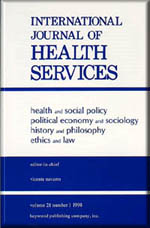Archive: November 2005
At the helm of the Exxon Valdez
November 28, 2005
In his first-rate blog, Informed Comment, University of Michigan history professor Juan Cole offers President Bush some personal advice about how history and historians work:
Let me finish with a word to W. As for your legacy two decades from now, George, let me clue you in on something--as a historian. In 20 years no Iraqis will have you on their minds one way or another. Do you think anyone in Egypt or Israel is still grateful to Jimmy Carter for helping bring to an end the cycle of Egyptian-Israeli wars? Jimmy Carter powerfully affected the destinies of all Egyptians and Israelis in that key way. Most people in both countries have probably never heard of him, and certainly no one talks about the first Camp David Accords anymore except as a dry historical subject. The US pro-Israel lobby is so ungrateful that they curse Carter roundly for all the help he gave Israel. Human beings don't have good memories for these things, which is why we have to have professional historians, a handful of people who are obsessed with the subject. And I guarantee you, George, that historians are going to be unkind to you. You went into a major war over a non-existent nuclear weapons program. Presidents' reputations don't survive things like that. Historians are creatures of documents and precision. A wild exaggeration with serious consequences is against everything they stand for as a profession. So forget about history and destiny and the divine will. You are at the helm of the Exxon Valdez and it is headed for the shoals. You can't afford to daydream about future decades.
My kinda lie
November 23, 2005

OK, does anyone believe that the US Congress had access to the "same intelligence" that the President had before the invasion of Iraq? By anyone, I don't necessarily mean you, I mean does anyone in the country actually believe this?
I can see the logic behind other administration lies --say, that Iraq is somehow linked to Al Qaeda, or that Saddam Hussein was on the brink of possessing nuclear weapons before we invaded. Those kinds of lies not only justify the invasion, but, just as importantly, they work well as lies. The average voter is simply not in a position to verify or falsify these kinds of claims. And, of course, in matters of national security, the typical American voter gives the President the benefit of a very large doubt. As a result, a host of talking heads and White House correspondents can say that the CIA and other US intelligence agencies have concluded that Iraq, in fact, had no significant ties to Al Qaeda (or as Murray Waas reports today in the National Journal, that Hussein was keeping tabs on Al Qaeda because he saw the fundamentalist group as a threat to his secular dictatorship). But, Dick Cheney can still muddy the waters by saying last Monday (as he has done many times before): "By the time Congress voted to authorize force [against Iraq] in late 2002, there was broad-based, bipartisan agreement that the time had come to enforce the legitimate demands of the international community. And our thinking was informed by what had happened to our country on the morning of September 11th, 2001." The two sentences link Iraq and September 11th, but, of course, in a way that allows Cheney to deny in polite company that he is trying to suggest any real link at all.

The claim, which President Bush voiced himself in his recent Veteran's Day speech, that Congress had the "same intelligence" as the White House, however, just doesn't work at either level. To begin with, the argument provides no justification for the war. If anything, the whiff of back-pedalling and ass-covering works to undermine the case for war. "No, I didn't borrow your lawnmower. I returned it yesterday. It was already broken when I borrowed it." We all know that we went to war to stop "Saddam's WMD" --for most Americans this is the only argument, except for "revenge" for 9-11, that would have led them to support the war before it began. So, saying that "everyone was wrong" about WMD works primarily to undermine the administration, not its opponents.
But the "same intelligence" claim is far worse than other administration lies (as a tactic) because it is so hard to believe. The President and Vice President and Secretary of Defense and Joint Chiefs of Staff don't know more than the 535 members of Congress? Are you high? No one believes that. If someone tells a pollster they believe that, its only because that person knows how the game is played and doesn't want to appear to be undermining the President.
The fundamental problem for the White House is that this particular lie works against them in the same way that Cheney's subliminal linking of Iraq with 9-11 works for them. At a time when the President's credibility is in serious doubt, he and his staff are out saying something that nobody believes could possibly be true, and saying it emphatically and often. People see this and walk away just a little more convinced that you can't trust this guy after all, that he's in this a little too deep, and flailing around, mostly trying to avoid being "blamed".
Thank god Karl Rove doesn't read my blog because I really want the White House to keep hammering away on this particular lie for as long as they can.
Free data
November 21, 2005
Like many policy-oriented research organizations in Washington, DC, and around the country, the Center for Economic and Policy Research (CEPR), where I work, uses a lot of large-scale survey data, including the Current Population Survey (CPS), the Survey of Income and Program Participation (SIPP), and the Public-Use Microdata Sample (PUMS) of the decennial census.
Over the years, my CEPR colleague, Heather Boushey, and I have spent thousands of hours reading, coding, recoding, decoding, and analyzing data from these surveys. While extensive documentation exists for most of the commonly used national surveys, the only way to really master the ins and outs of the data sets is through a combination of learning from the experience of other researchers and putting in the hours working with the data first hand. Over the years, we've benefited enormously from the tremendous staff at the Bureau of Labor Statistics (BLS) and the Census Bureau, as well as our friends and colleagues at the New School (Heather), the Centre for Economic Performance (John), and the Economic Policy Institute (both of us).
A couple of years ago, Heather and I decided to port the philosophy of free software, pioneered by Richard Stallman, the Free Software Foundation (FSF), and many others, to the world of policy research. As the Free Software Foundation explains:
Free software is a matter of the users' freedom to run, copy, distribute, study, change and improve the software. More precisely, it refers to four kinds of freedom, for the users of the software:
- The freedom to run the program, for any purpose (freedom 0).
- The freedom to study how the program works, and adapt it to your needs (freedom 1). Access to the source code is a precondition for this.
- The freedom to redistribute copies so you can help your neighbor (freedom 2).
- The freedom to improve the program, and release your improvements to the public, so that the whole community benefits (freedom 3). Access to the source code is a precondition for this.
We thought policy researchers that use many of the standard, but often complicated, government microdata sets such as the CPS and the SIPP would benefit significantly from "free data extracts" based on these principles of free software.
Currently, extracts of standard data sets typically take one of three forms. Some extracts are strictly proprietary, available publicly, but with restrictions on how the extracts are used, copied, changed, or redistributed. The Unicon Corporation, for example, sells excellent extracts of the CPS and other data sets for a reasonable fee, but with substantial restrictions on their use (including modifying and copying the software). The second kind of extracts are quasi-proprietary extracts, which are typically developed, maintained, and held in-house at major policy-research organizations or universities. In the policy world, these extracts tend to be fairly jealously guarded since they embody years, sometimes decades, of institutional knowledge and expertise, which give those who maintain and update the extracts a substantial advantage over their "competitors" in the policy research world. In more academic research centers, these quasi-propietary extracts tend to be more accessible, but less formally maintained, documented, and updated. They float around academic departments and move across departments and universities informally.
The third and rarest kind of extracts are "free" extracts in the same sense that the Free Software Foundation uses this term. Probably the best-known examples in economics are the CPS extracts sponsored by the National Bureau of Economic Research (NBER), which maintains, updates, and posts all the code to produce various extracts of the CPS and some other data sets --all under the FSF's GNU General Public License (GPL). Our CEPR extracts of the CPS and SIPP, which we've made available for over two years under the GNU GPL, are another example.
We believe that free extracts have considerable private as well as social advantages over the currently much more common proprietary and quasi-proprietary forms of extracts. First, extracting, coding, and mastering a new data set can involve hundreds of hours of researchers' time. Free, fully documented, "open source" extracts could potentially save new researchers, as a group, thousands or even tens of thousands of hours. To the extent that social-science research actually performs a socially useful function, these are tens of thousands of hours that could be dedicated to understanding social phenomena, not reinventing data extracts created in nearly identical form already by a host of earlier researchers.
Second, free extracts would be far more reliable than proprietary or quasi-proprietary extracts. Strictly proprietary extracts typically shield the code used to produce them. Without access to the code, researchers are far less likely to spot coding errors (and are in the uncomfortable position of having to trust the coding and judgment of those producing the extracts). Quasi-proprietary extracts can also be less reliable. The closed, quasi-proprietary extracts commonly used by non-academic policy researchers are frequently the product of a relatively small group of researchers and programmers with little outside review or feedback on the actual code. Meanwhile, the more open quasi-proprietary extracts found in more academic contexts typically lack a central coordinator, maintainer, and updater with sufficient organizational capacity and institutional interest in ensuring that corrections and improvements in the extracts appear in subsequent versions.
Third, free extracts can help to spur innovations and improvements. Free extracts allow new researchers to get up to speed much more quickly than they otherwise would. Researchers can then devote at least some of the time they save at startup to create new variables or develop new procedures for processing the data (to correct for top-coding or survey changes, for example.)
Finally, free extracts directly benefit those who make them free. At CEPR, we believe that making our extracts free makes sense socially, primarily because free extracts will help to improve the quantity and quality of social-science research. But, we also realize that CEPR's research will be better if a community of researchers develops around our particular extracts. The community of outsiders who benefit from our code also have an interest in spotting coding errors and writing improvements and extensions to our programs, thereby improving the quality of the extracts that we use every day in our own research. Furthermore, to the extent that free extracts become the standard in policy research, CEPR will also benefit substantially because the "entry cost" to using a new data set for a particular piece of research will fall dramatically, possibly allowing CEPR to work for the first time with the General Social Survey, or the notoriously tricky Survey of Consumer Finance, for example.
I'm writing about free extracts now because CEPR has just released the new and improved version of the CEPR data extracts, available at: www.ceprDATA.org. The newly re-launched site will eventually hold all of the code for all of the data sets that CEPR uses to produce our research reports on the US labor market. For the moment, www.ceprDATA.org, which Heather, Ben Zipperer, and I will maintain, contains my extracts of the CPS Outgoing Rotation Group (ORG) and Heather's SIPP extracts (a monumental amount of work!). If you work with either of these data sets, please take a look at our extracts and let us know what you think.
No Iraqi Left Behind
November 16, 2005
The Senate voted 98-0 yesterday for a bill that, according to the Associated Press, asks the Bush administration to "'explain to Congress and the American people its strategy for the successful completion of the mission in Iraq' and to provide reports on US foreign policy and military operations in Iraq every three months until all US combat brigades have been withdrawn."
The Senate action prompted an anonymous NAM reader, who asked to be identified only as "a former high school student", to prepare the following press release for the White House:
No Iraqi Left Behind Washington, DC November 15, 2005 I am pleased today to announce the passage of the No Iraqi Left Behind bill, thanks to the good work of Senators Frist and Warner. Today we send a clear message to the Iraqi people that they must be held accountable, they must take charge of their destiny. Under the terms of this legislation, the Iraqi Department of Defense will be required to test the combat readiness of each Iraqi military unit. Those units which fail to meet national norms for combat readiness will be required to allow members of the failing units to transfer to performing units. Further, parents of members of "failing grade" units will be permitted to transfer their child to military units with better signs of progress. In conjunction with the institution of the No Iraqi Left Behind initiative, I have asked Secretary Spellings to assume responsibility for the Department of Defense. I want to thank Secretary Rumsfeld for his long service to this country and wish him well in his new duties as a Reading Specialist in West Philadelphia.
New blog links
November 15, 2005

I've added several new entries to the links page. The first is to my sister's new blog "Romantic Atlas". She's a romantic and obsessed with maps. The tag line for Romantic Atlas is "Mapping Philadelphia's Love Life", but my guess is that it will do that and more.

The second new link is to "Barbara's Blog", Barbara Ehrenreich's fledgling presence on the web. In case you were in a coma for all of the current millenium, Ehrenreich wrote the best-selling Nickel and Dimed, about her experiences as an "undercover" low-wage worker in contemporary America. She's just released a new book Bait and Switch, which gives the Nickel and Dimed treatment to white-collar work in corporate America. I'm a big fan of Ehrenreich, but I'm especially happy to plug her new blog because her "Resources" section features my recent paper on "Good Jobs".

Adding "Romantic Atlas" and "Barbara's Blog" to my blog roll provides the perfect opportunity to include another recent favorite: feministing.com. The site's staff of four or five seeks to provide a platform for young women "to comment, analyze and influence." In practice, reading the site is like having a beer with three or four of your smartest, funniest, and hippest friends. Recent posts cover the concept of "women bloggers", the Alito nomination, Maureen Dowd's new book, racism, Code Pink, glass ceilings, intelligent design, television, and a lot more.
Hurricane Katrina
November 10, 2005
A short opinion piece I wrote a week after Katrina hit New Orleans has run many weeks later in several smaller newspapers around the country, including the Topeka Capital-Journal (Kansas), the Star-Democrat (Easton, Maryland), the Tribune-Times (Simpsonville, South Carolina), and the Northwest Arkansas Times.
Here are links to the Capital-Journal version (free registration required); the Tribune-Times version; and the Northwest Arkansas Times version.
Slashdot Effect
November 9, 2005
Over the weekend, a paper written by my friend and CEPR colleague, Dean Baker, appeared on the front page of Slashdot (motto: "News for nerds. Stuff that matters.") As the post on Slashdot explained:
"Economist Dean Baker outlines alternative funding mechanisms for software development in a new report called "Opening Doors and Smashing Windows"..., available at the Center for Economic and Policy Research. One proposal is to create a US government-funded Software Development Corps of public software corporations, which compete and produce only free and open source software. Baker estimates that through the resulting lower prices in software and computers, the government would recoup its annual $2 billion appropriation to the program and US consumers would save $80-120 billion each year -- all while 20,000 software developers are supported to work specifically on open source projects."
The post on "Opening Doors and Smashing Windows" was one of the most commented topics on Slashdot last weekend, with over 400 comments. The big impact, however, was at the CEPR web site, which experienced twice as many hits on Saturday, Sunday, and Monday as at the next highest period in the site's history (last summer, when CEPR released a special "housing cost calculator"). In the two or three days after the Slashdot feature, about 10,000 people downloaded a copy of the "Smashing Windows" paper.
Upgrading to Ubuntu Breezy
November 5, 2005
I've just upgraded the Ubuntu distribution of GNU/Linux running on my laptop from 5.04 (Hoary) to 5.10 (Breezy). The new version of Ubuntu has revived a key feature of my IBM ThinkPad X40 that had been disabled under the earlier version of Ubuntu. Now I am again able to use my laptop to make OpenOffice Impress presentations, which the rest of the world may view as a bug not a feature of Ubuntu 5.10. I've written a short summary of how I did the upgrading, which was remarkably simple and painless.
CEPR in IJHS
November 2, 2005

The current issue of the International Journal of Health Services has two of my recent papers. The first paper, which I wrote with Vicente Navarro, professor at both Johns Hopkins in Baltimore and the Pompeu Fabra University in Barcelona, criticizes the push for US-style economic reforms in Europe. The second paper analyzes the main causes of the rise since the end of the 1970s in economic inequality in the United States. The publications page has more details on where to find the papers.
My CEPR colleague, Heather Boushey, also has a piece on "The Effects on Employment and Wages When Working Mothers Lose Medicaid" in the same issue of IJHS.